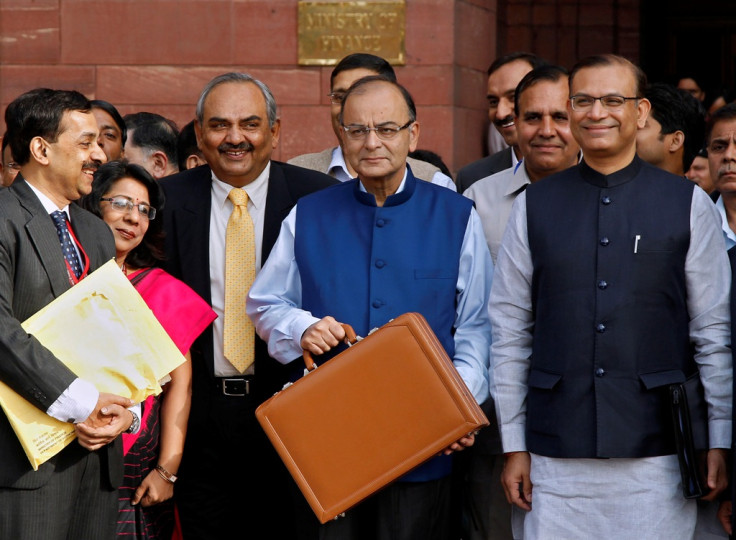India Budget 2015: Finance Minister Arun Jaitley roots for growth, investments and job creation
Deadline for bringing down India's fiscal deficit to 3% of GDP put off by a year

India's Finance Minister Arun Jaitley has announced a national spending plan aimed at growth, saying the pace of lowering India's fiscal deficit will slow as he seeks to boost investment, jobs and ensure that the common man benefits.
Jaitley, delivering his maiden full-year budget since Prime Minister Narendra Modi's massive election victory last May, said economic growth will accelerate to between 8% and 8.5% in the financial year starting in April. A growth rate of 7.4% has been estimated for the ongoing year.
Jaitley forecast inflation at 5% by the end of the fiscal year ending March 2016, undershooting the central bank's 6% target and making space for lower interest rates. Annual inflation was 5.1% in January.
Fiscal deficit
Jaitley said he will stand by the fiscal deficit target of 4.1% of GDP for the financial year 2014-15, which ends on 31 March.
But he put off by a year, to fiscal 2017-18, a deadline for bringing down the deficit to 3% of GDP. In fiscal 2015-16, the deficit will be 3.9% of GDP, and in fiscal 2016-17 it will be 3.5% of GDP, the minister added.
That fiscal deficit roadmap gives the government room to invest in infrastructure.
Jaitley's budget has increased road and rail investments by 700bn Indian rupees ($11.4bn, £7.4bn, €10.1bn) and announced the government will commission five "ultra-mega power" generation projects, each generating 4,000MW, to end persistent electricity shortages in Asia's third-largest economy.
Black money
Jaitley also proposed to enact a comprehensive law to combat India's black money menace.
He said the government's black money reduction efforts will be expedited. Concealment of taxes could attract a 300% penalty and tax returns will need to declare operation of foreign accounts. Prison terms were also proposed.
In his budget speech, the minister also said the nation's corporate tax rate will be cut from 30% to 25% over four years.
Jaitley said: "...it is no secret that expectations of this Budget have been high. People who urge us to undertake Big Bang Reforms, also say that the Indian economy is a giant super tanker, or an elephant. An elephant, Madam Speaker, moves slowly but surely. Even our worst critics would admit that we have moved rapidly..."
Firstpost said in an editorial: "...Net-net: Jaitley has not let us down. This is a budget worth remembering."
Experts' take
Nirakar Pradhan, Chief Investment Officer at Future Generali India Life Insurance, told IBTimes UK: "To me, the finance minister has announced a pragmatic budget given the constraints in the current operating environment.
"Growth requires investment. The Indian economy [has] not [been] doing well for [the] last couple of years.
"It's up to the government or the private sector to kick-start the investment cycle. The government has chosen to do exactly that with [a] huge focus on investment in infrastructure. As a result, the target for fiscal deficit will be 3.9%, a little higher than earlier goal of 3.6% as at March, 2016."
Vikas Vasal, Partner and Head Tax- Markets, at KPMG India, said in a note: "This budget...lays emphasis on ease of doing business in India through constructive actionable steps that will help re-build the investors' confidence...Steps like deferment of GAAR by two years and its applicability to investments made thereafter, resolve to go ahead with the GST regime, reduction in corporate tax rate over next four years to 25%, reduction in tax rate on royalty payments to 10% etc. will help boost business confidence.
"There has also been an attempt to address the key issues of the investors like clarity on REITs and non-applicability of MAT on FPIs etc. Overall, it's a progressive budget with emphasis on putting India back on the agenda as an investment destination for both foreign and domestic investors."
© Copyright IBTimes 2025. All rights reserved.






















